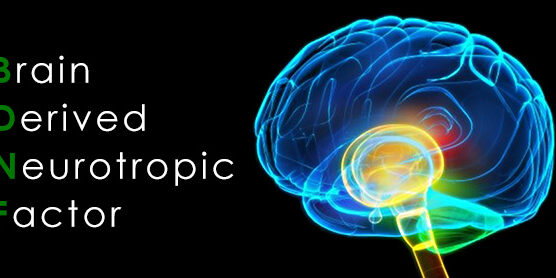What is Brain Derived Neurotrophic Factor?
Brain Derived Neurotrophic Factor (BDNF) is a protein found in the brain and spinal cord that helps our neurons, or brain cells, to grow, mature, and survive. It is found specifically at our synapses, or the point where our neurons communicate with each another. Within an addiction context, understanding BDNF can help you restore independence.
Our brain synapses are not fixed in place, but can change and adapt over time in response to our experiences -— a characteristic known as plasticity. The BDNF protein assists in regulating our synaptic plasticity, which is a vital part of our learning and memory. BDNF is present in, and may help regulate, the regions of our brain that manage eating, drinking, and body weight. By regulating the production of BDNF through regular exercise and strength training, you can build protection against negative thoughts, stimulate muscle and bone growth, and curb addictive behaviors.
Thinking Positively
Because our brain’s nerve networks, or neural synapses, are not permanent, we are able to strengthen the thoughts & behaviors we want to keep and transform the ones that no longer serve us. Our brain’s characteristic of plasticity provides room for increased positive thinking and the opportunity to release and protect from negative thoughts. Heightened levels of the BDNF protein give neural networks the flexibility they need to move and rewire with grace and ease, which is an essential part of our ability to learn and remember new concepts and to process our experiences. The less rigid our brain’s networks are through increased BDNF levels, the more flexible, creative, and playful we can be with our thinking.
Strength Training & Physical Exercise
Research shows that heightened BDNF levels strengthen long-term memory and mood, but how do you boost those BDNF levels? Through regular physical exercise and strength training! BDNF is secreted in large doses when you engage in a rigorous work-out or strength-training routine; this means that when you exercise regularly, your muscles and brain cells are growing!
The intensity of your endurance-training workout is key to increasing your levels of BDNF; the more energy you exert within a single workout, the greater amount of BDNF protein your body produces. The more intensely you train your body on a regular basis, the more frequently BDNF is produced and the stronger and more habitual your positive thinking becomes overtime.
In addition to stimulating muscle & bone growth, the BDNF protein promotes the growth of brain tissue in the pre-frontal cortex—the area of our brain responsible for regulating behavior and conceptual learning—and the hippocampus—the area associated with memory. Thus, when you frequently increase your BDNF levels through regular, intense exercise, you radically strengthen your neural relationships, allowing you to think more sharply and positively and act less impulsively on a regular basis.
Alternative BDNF Resistance
Researchers are exploring the potential of pharmaceutical anti-depressant medications to help raise BDNF levels. Citalopram (Celexa) is a selective serotonin reuptake inhibitor (SSRI) that increases serotonin levels, which encourages neurons to produce more BDNF. These results could help treat severe addiction and people with Huntington’s Disease. Ampakines are another drug that could possibly assist in BDNF growth. Additionally, the medication Cystamine may not only raise BDNF levels, but also has antioxidant properties and might prevent protein aggregation, or clumping, a phenomenon present in neurological degenerative diseases such as Alzheimer’s and Huntington’s.
BDNF and Addiction Recovery
Strength training, exercise, and pharmaceutical medications are all ways in which to boost your BDNF levels. As you choose and practice—with the guidance of your physician and support of your family—the course of action that best fits your needs and lifestyle, you will begin to notice a shift in your overall mood as you are able to think more positively, even in stressful situations, and rely less on your addictive behaviors and more on yourself. Dr. Avart’s addiction treatment programs incorporate brain derived neurotrophic factor techniques so patients can more easily reestablish their independence.






